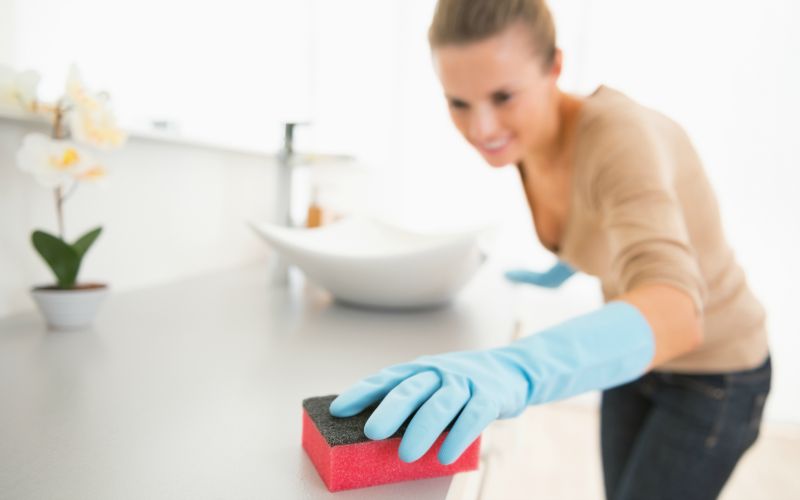
I have been fighting a lifelong battle with Obsessive Compulsive Disorder, commonly known as OCD. Being diagnosed at a young age, I can remember back to the 6th grade when I would put on each item of clothing four times, tap each corner of the bathroom wall twice before leaving, and saying “I love you” two times every night to each of my parents before bedtime. Logically, I understood that putting my shirt on four separate times would not protect anyone in my immediate family from catching some rare and deadly disease, but I couldn’t seem to allow the logical side of my mind to quiet the irrational. My mind became consumed with these thoughts, further cementing the daily struggle in my head between logic and fantasy.
As an employee and student, though, my OCD has been a huge benefit to my employers and my GPA (at a high personal cost). I am extremely organized, and I’m so detail oriented that even the most trivial error should fear my wrath. There is a 100% chance that I have already reread this post 20 times. Of course after the 5th time finding no errors, yet needing to read it 15 more times just to build up a wall against any possible anxieties that may arise once I press send.
So, what’s the issue? I’m a competent worker, I am a great asset to any team, and I am always on my A game. My organization skills are impeccable, I leave my desk cleaner than I found it, and my notes look like I majored in note taking. But this all comes at a cost. After a long day of quadruple checking my writing, making sure all the pens are on the right side of the computer, ensuring my blouse is tucked in 10 times before returning to the office from the restroom, I am exhausted. Emotionally, physically, and mentally exhausted.
The line between being organized and suffering deeply from compulsions may seem wishy-washy to those who do not feel its effects, but to those who struggle with ocd symptoms, it is clearer than a celebrity’s skin after a Proactiv commercial (c’mon Adam Levine, your skin has always looked that nice). That’s why when people say “Ugh, I’m super OCD, I mean, my room is sooo clean,” I twinge with annoyance. OCD is not the general act of being clean, orderly, and organized, but it is the compulsive and intrusive thoughts that run through your head in an effort to maintain order.
For example, if you love having a clean room simply because you like being able to find your leggings more easily, you probably don’t have OCD. If you clean your room because you genuinely believe there is a chance your cousin may die in a car accident if you don’t, you are probably leaning towards the OCD side of the scale.
Being an organized person is wonderful, and many organized people do suffer from OCD; but it is not a prerequisite nor diagnosis. I do not mean to slight people who truly believe they have OCD despite not having a formal diagnosis, because many people don’t have the ability to visit a mental health therapist to be diagnosed. I do believe, though, that the general assumption that Obsessive Compulsive Disorder is synonymous with cleanliness and organization is outdated. Well, not only outdated, but incorrect.
In trying to be an organized person while simultaneously battling OCD, I have come to the realization that the best way to protect yourself and your mental health is to be honest. OCD is like any other disease that involves a “malfunction” in the brain or body, and should be treated as such. Being upfront allows your coworkers, employees, and friends to help you achieve the balance between maintaining an orderly work environment and non-OCD behavior.
When I clean my room obsessively and physically cannot make my body stop, my friend Raleigh jumps in and says, “You’ve sanitized the desk five times, let’s go watch that Jimmy Fallon lip sync video.” Not only does he know how to recognize my behavior, he knows that I need him to actively interrupt my brain and change the focus.
Maybe you can pick 1 or 2 coworkers to be your Raleigh, a guide who reminds you that the document looks perfect in their eyes as well, so you should both just start on the next project.
Or, try creating a checklist to run through when you feel intrusive thoughts bubbling:
Ask yourself, “I know the project is done correctly, will my Mother be physically affected by the fact that I haven’t surveyed each page 20 times? Can I take a five-minute walk to calm my mind before emailing this letter? Have any errors I made in the past been directly linked to something bad happening in the world?”
By creating strategies, identifying key allies, and actively monitoring impulsive thoughts, OCD’ers can manage their impulses while producing high quality work and being a highly effective employee. Besides, you may miss out on that five o’clock happy hour if you’re left working under the power of your compulsions…and who wants to miss a cold margarita after a long day!

Anna Kovach
Anna Kovach is a recent college graduate (bet you’d never guess that!) and lives in Oregon with her parents and their Golden Retriever. She aspires to sing jazz, teach Spanish, open a restaurant, become a CEO, or get a Masters Degree in Latin American Studies. Her favorite movie is How To Lose A Guy In 10 Days, her favorite book is Siddhartha by Herman Hesse, and her favorite food is anything her Mom cooks for her.
Connect with Anna… Instagram, Twitter




Be the first to comment